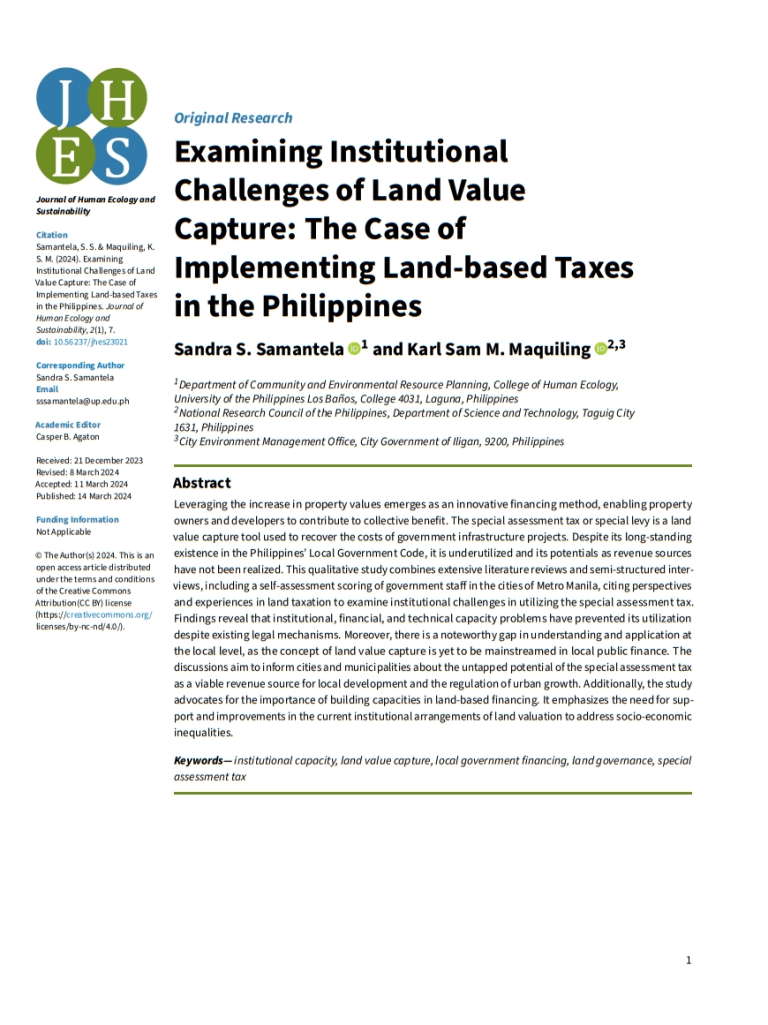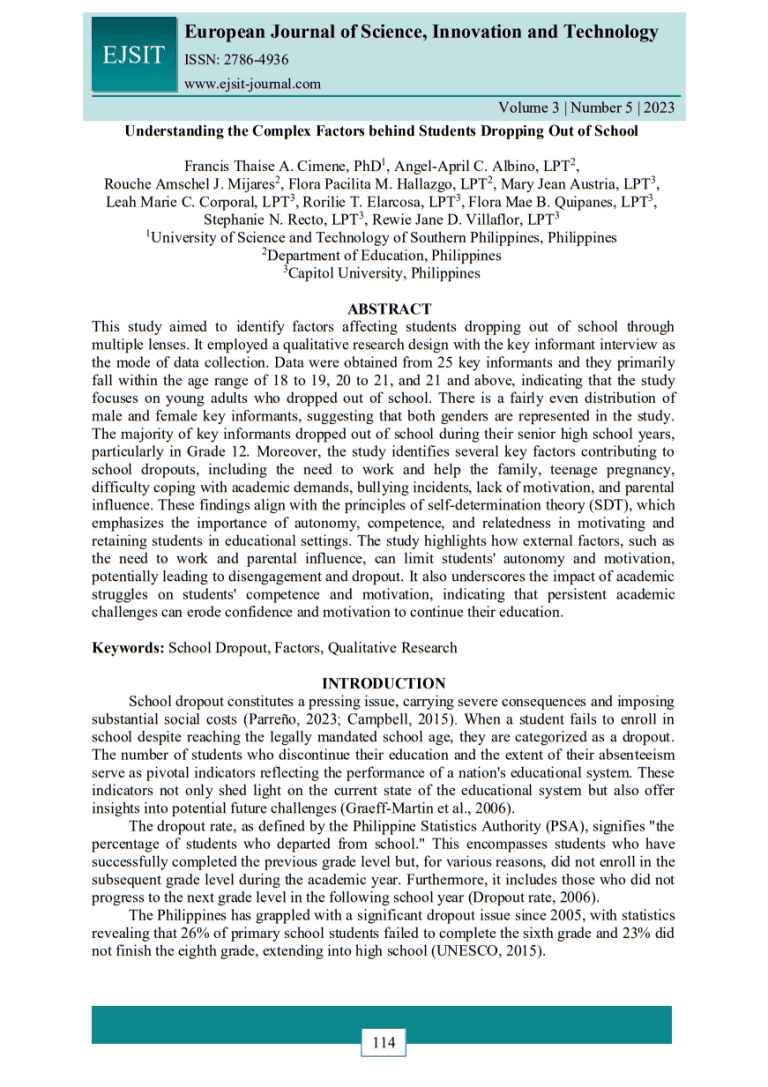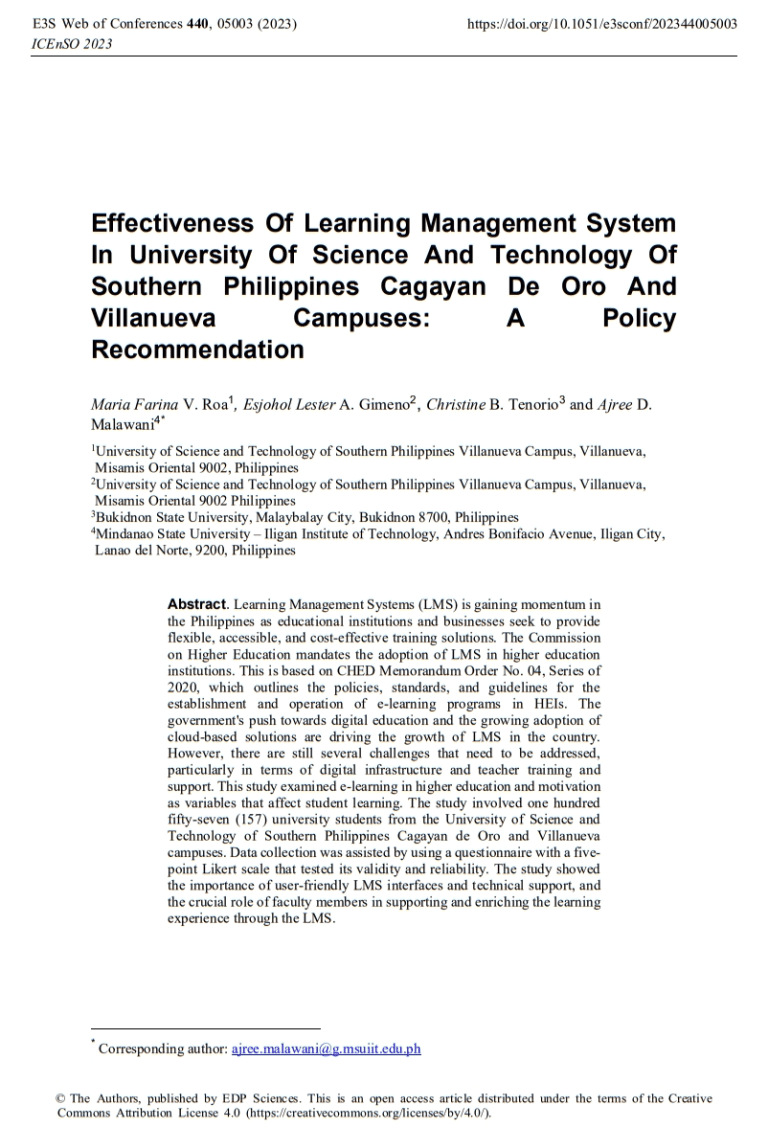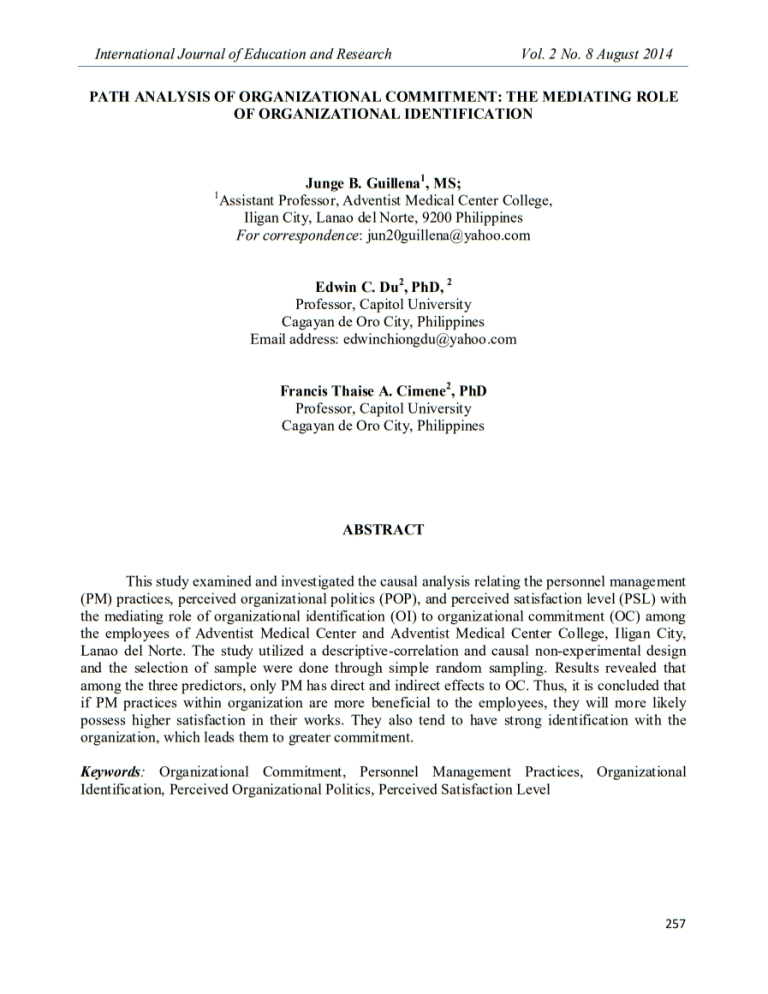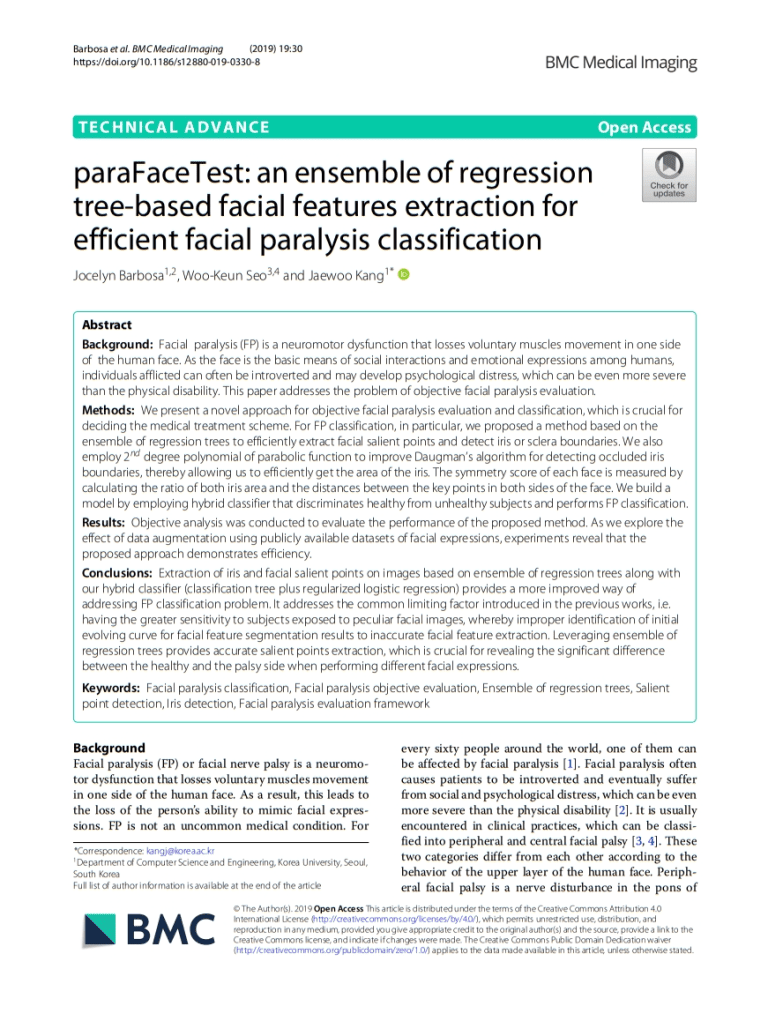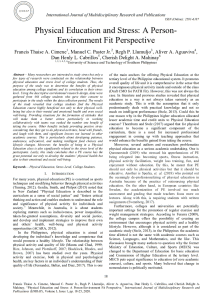

Published: Jan 02, 2020 | Updated: May 02, 2024
Physical Education and Stress: A Person-Environment Fit Perspective
Authors: Dr. Francis Thaise Manuel C. Paster Jr., Regh P. Llumuljo, Aliver A. Aguaviva, Dan Henly L. Cabrillos and Cherish Delight A. Mahinay college students, physical education, stress levelAbstract
Many researchers are interested to study stress but only a few types of research were conducted on the relationship between physical education and stress level of college students. Thus, the purpose of the study was to determine the benefits of physical education among college students and its correlation to their stress level. Using the descriptive correlational research design, data were gathered from 464 college students who gave their consent to participate in the study within the data collection period. The results of the study revealed that college students find the Physical Education course highly beneficial not only to their physical well-being but also to their mental and emotional health and even social well-being. Providing situations for the formation of attitudes that will make them a better citizen particularly in working collaboratively with teams was ranked the number one benefit of taking the course. Other benefits include providing positive stress considering that they get to do physical activities, bond with friends, and laugh with them, and significant lessons not learned in other academic courses. This is particularly about developing patience, endurance, self-control, and making intelligent food choices and lifestyle changes. Moreover, the benefits of being in a Physical Education class is also significantly related to the stress level of the participants. Lastly, this study concludes that a PE course has the great potential not only to develop the students’ physical health but also to their emotional and social well-being.






